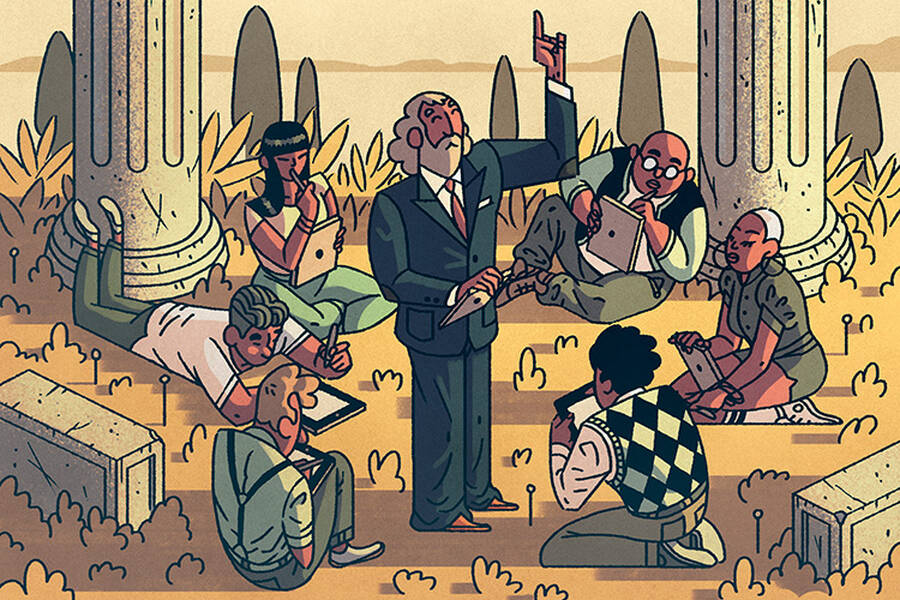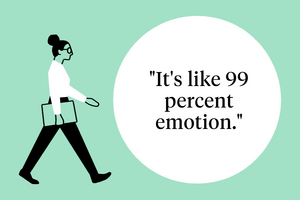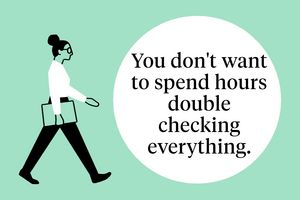Maybe you’ve made specific resolutions, or perhaps you simply sense a clean slate for the year ahead and want to get going on the right foot. But how, exactly, does one start out strong?
Here, Kellogg faculty offer research and insights on the best places to begin—whether you are seeking new career heights or a healthier lifestyle.
Who doesn’t want to find ways to be more productive at work?
One key, says Carter Cast, a clinical professor of entrepreneurship, is to start your day with a to-do list that’s tailored to your most important goals and your own working style.
“Decide which tasks will really move the needle for your organization, and focus on those first,” Cast says. “You can’t treat every task or message in your inbox equally.” Also, Cast says, “Do your most important work when your brain is working well. For me, that’s early morning. I turn into a zombie around 4pm.”
And ask yourself: When are you really at your best? If you work most effectively before noon, for instance, that is probably not the best time to spend on noncritical administrative tasks. So turn off your email alerts, keep your phone at a safe distance, and reserve these hours for the projects that matter the most to you and your organization.
Be sure to plan out in advance how you will use this time, Cast warns. Otherwise, “the tail ends up wagging the dog. Remember that, by and large, your inbox is composed of other people’s agendas, not yours.”
Reducing personal debt is a common New Year’s resolution, as well as a daunting one. Where should one start on such a tall task?
One approach is to begin by paying off the debt with the highest interest rate, so that you keep your interest payments as low as possible. But Blake McShane, an associate professor of marketing, wondered if another strategy, known as the snowball method, might better motivate people to keep whittling away at their debt.
He and a coauthor tested the idea that debtors would have more success if they paid off small debts first. Because they can be paid off more easily, this approach might create a sense of success that spurs the person to keep at the overall task.
They tested their idea using data from nearly 6,000 clients of a debt-settlement firm, each of whom had multiple accounts to pay off. They found that, indeed, the number of accounts an individual had paid off (as a fraction of the total number of accounts) better predicted successfully completing the program than the dollar amount paid off (as a fraction of the total dollar amount).
The idea is that starting small “could motivate you, because you check something off your list,” says McShane. “It can make you think that you might actually have it in you to complete the whole thing. ‘Hey, I’ve achieved this! I wasn’t sure whether I could do it, but I’ve got one so maybe I can get them all.’”
Starting out strong is especially important in negotiations. And a crucial component is knowing when to make the first offer.
It is a question that Thomas Lys, professor emeritus of accounting information and management, addresses in the book, Getting (More of) What You Want: How the Secrets of Economics and Psychology Can Help You Negotiate Anything, in Business and in Life, which he wrote with Stanford professor Margaret Neale.
“The biggest advantage to making a first offer is the anchoring effect,” Lys explains. Research
suggests that the first number put on the table tends to “anchor” the entire negotiation, as parties disproportionately rely on that number when making subsequent offers.
The disadvantage to making the first offer, on the other hand, is that you reveal information that your opponent can use to their advantage. For example, if you’re negotiating a job offer and state that you want to be assigned to Mexico City, you’re letting the organization know that is important to you, and it can then use that information strategically. Perhaps they’ll offer you less pay but in the city you want.
So the decision about whether to make the first offer involves weighing the advantage of the anchoring effect against the disadvantage of surrendering information.
Lys says that in general—and contrary to popular wisdom—it is best to make the first offer, especially if you are well prepared. Then again, if you are really well prepared and you think that your counterpart is not, you may want to let him or her make the first offer, Lys says, “because the anchoring effect will not have as powerful an impact on you.”
Here’s a surprising way to start off your next brainstorming meeting: begin with everyone telling embarrassing stories.
Sharing cringe-inducing anecdotes seems to remove the barrier of self-censorship, according to research from Leigh Thompson, a professor of management and organizations. Instead, sharing a moment of embarrassment can actually maximize creativity in group brainstorms.
Thompson and coauthors conducted studies of individual and team brainstorms. They found that those who had been told to share an embarrassing story generated both more ideas and a wider range of ideas than those who had been told to share a proud moment, as well as those who shared something innocuous, such as how their day was going.
Managers should consider beginning their brainstorming sessions with the embarrassing-story exercise, Thompson says. Not only does it promote idea generation, but it also engages people from the start. “Automatically, people start listening and they’re more engaged,” she says.
To get the most out of the exercise, it’s important that people share recent stories, so that they don’t think to themselves, “Well, I’m a different person now,” Thompson says.
It is no accident that this article is all about starting off strong: research suggests that people put a lot more emphasis on doing things correctly at the very beginning and the very end of a task.
Why? Beginnings and endings are transition points, and it is simply human nature to pay more attention to them. This means, if we want to maintain our own positive self-image, we’ll put extra effort into adhering to our own standards during these times. One study finds, for instance, that Jewish participants are more likely to light Hanukah candles during the first and last nights of the eight-day holiday than during the middle.
“Actions at the beginning and end of a sequence appear to reflect more on our own personal standards than actions in the middle,” says Maferima Touré-Tillery, an associate professor of marketing.
So it stands to reason that the reverse is also true: you’ll be more forgiving of yourself if you slack in the middle of a given task.
Touré-Tillery and a coauthor demonstrate this in a series of experiments. In one, they recruited 98 coffee drinkers who were shown a “buy 9, get the 10th free” punch card with either one, five, or eight holes punched. Then they were asked to imagine that they had been on a “coffee detox” in an effort to cut back on their caffeine. How bad would they feel about themselves if they nonetheless gave into their temptation to buy a caffeinated coffee?
Participants who gave in in the middle of their punch card felt better about succumbing to temptation than those who did so at the beginning or end of their card.
So if you already have a strong start under your belt, it is important not to get overly confident.






